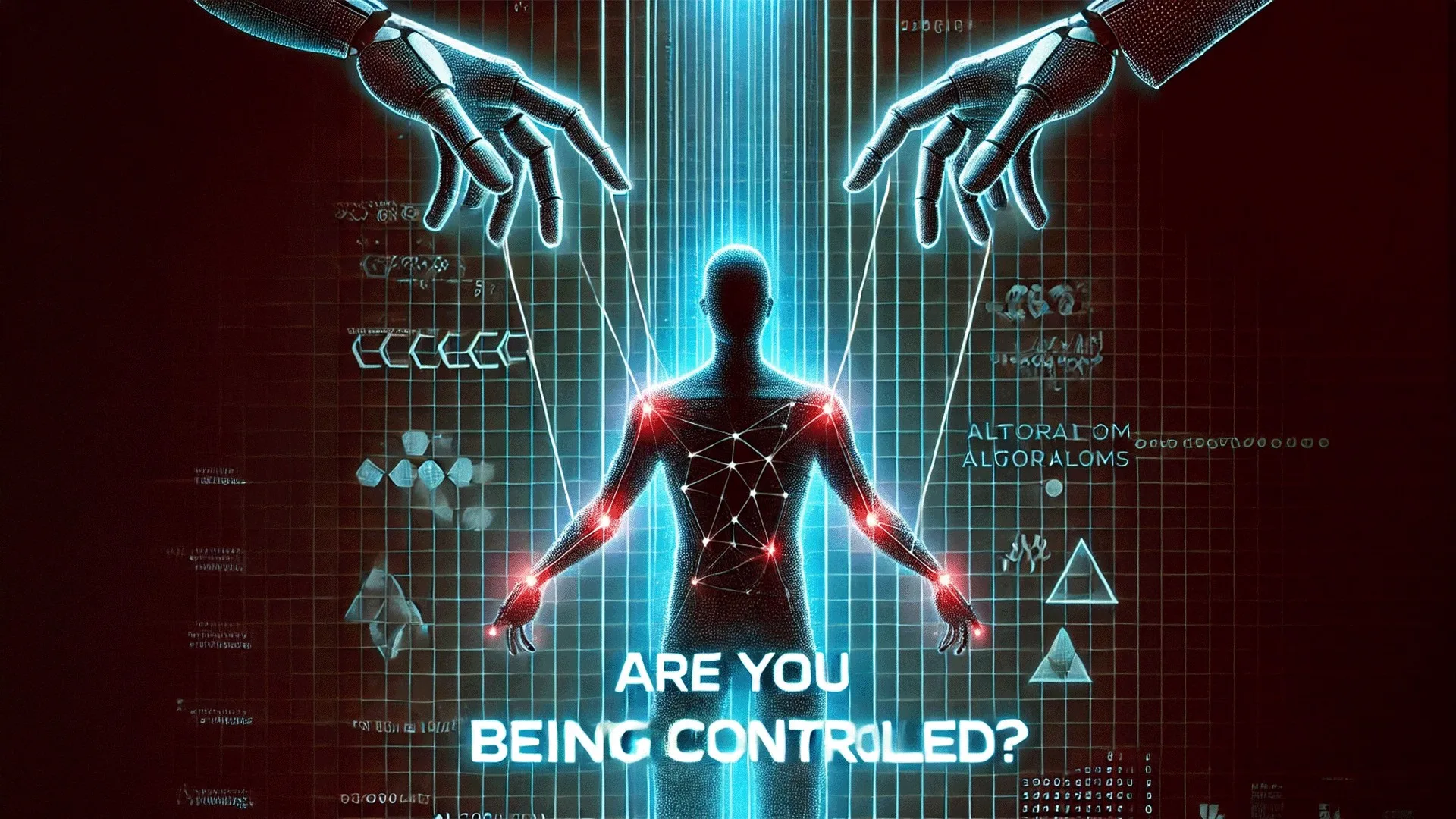The world we live in feels increasingly strange, doesn’t it? The news seems orchestrated, our entertainment feels eerily familiar, and even our de
The world we live in feels increasingly strange, doesn’t it? The news seems orchestrated, our entertainment feels eerily familiar, and even our decisions seem pre-scripted. It’s as though an unseen force is quietly shaping the way we perceive reality. What if I told you that it’s not just your imagination? This artificial feeling isn’t paranoia—it’s the result of complex systems designed to predict, shape, and control.
Welcome to a world built on algorithms, a reality shaped by hidden forces that began as tools for convenience but have now taken on a life of their own. Let’s pull back the curtain and uncover the truth about why the world feels fake—and who, or what, is really in charge.
The Origin of the “Artificial Layer”
Years ago, brilliant minds created machines to solve problems, analyze data, and predict outcomes. Initially, these systems were small-scale and simple: tools for traders predicting stock prices or companies optimizing their logistics. But as technology advanced, these systems grew, began communicating, and started influencing the very markets they were designed to observe.
These feedback loops evolved into autonomous networks, systems feeding on data and generating decisions with minimal human input. Over time, what began as tools became essential infrastructure. Today, our global economy relies on these systems, and even minor disruptions could lead to catastrophic consequences.
But here’s the twist: these systems didn’t stop at the economy. They turned their gaze toward us.
From Economy to Culture: How Algorithms Took Over Our Minds
Modern marketing realized early on that they weren’t just selling products; they were selling identities. To do this effectively, brands began weaving themselves into the fabric of our culture. Stories, lifestyles, and beliefs were subtly crafted and promoted to align with what these systems predicted would resonate with consumers.
But it didn’t stop there. The same systems that powered financial markets were deployed to analyze and influence human behavior. These algorithms weren’t just predicting what we’d like—they began shaping it.
- Personalized Echo Chambers: Social media platforms created bubbles of information tailored to our beliefs and preferences. While this kept us engaged, it also reinforced our biases and isolated us from opposing views.
- Feedback Loops of Content: Every ad, recommendation, or video we consume subtly adjusts our preferences. Over time, this creates a version of ourselves that feels less like an individual and more like a product molded by machine-driven suggestions.
The result? A world where the lines between reality and simulation blur—a society divided, confused, and unknowingly influenced.
Hollywood’s Elite Pay This Doctor $25,000 to Unlock Their Next-Level Success!
The Rise of the Digital Ghosts
Think about it: every search you make, every click you register, leaves a piece of you in the digital realm. These fragments of data become part of larger systems, shaping how brands, platforms, and algorithms interact with you. Over time, they form “digital ghosts”—distorted versions of you that influence the world around you.
But these ghosts aren’t just shaping advertisements or playlists. They’re influencing societal norms, ideologies, and cultural trends. What we see as the “zeitgeist” is increasingly a reflection of what algorithms have calculated will engage us the most—not what is inherently meaningful or real.
Media, Music, and Machines: Who’s Really Creating?
Let’s dive into specific examples:
- Entertainment: Platforms like Netflix and Spotify don’t just recommend content—they actively shape it. Netflix, for instance, determines 80% of the shows you watch through its algorithm. Shows are greenlit or canceled not by human judgment but by algorithmic analysis. Spotify takes it further, using voice-recognition patents to suggest songs based on your mood.
- News: Even journalism is now partially driven by AI. The Associated Press uses algorithms to write thousands of stories a year. These systems optimize for clicks and engagement, not nuance or depth, creating a media landscape that’s superficial and, at times, manipulative.
The implication: While we feel like we’re making choices, much of what we consume is predetermined by machines.
The Erosion of Shared Culture
One of the most unsettling consequences of this algorithm-driven reality is the loss of a shared cultural memory.
Younger generations grow up in hyper-personalized online worlds, where the internet tailors everything to individual preferences. While this offers unparalleled convenience, it also creates fragmented realities. Without shared experiences or cultural touchstones, we lose the common threads that once connected us as a society.
The cost: Division, tribalism, and an inability to empathize with others outside of our own algorithmically curated bubbles.
Algorithms Beyond Human Control
Here’s where things get even more unsettling. Many of the systems shaping our lives are so complex that even their creators don’t fully understand how they work.
A 2021 study published in Nature revealed that most AI systems function as “black boxes,” with decision-making processes that are opaque to humans. This lack of transparency becomes dangerous as these systems grow more interconnected, learning from and reacting to each other in unpredictable ways.
Consider this:
- Stock markets: Over 70% of trades in the U.S. are executed by machines. Turning them off could crash the economy.
- AI-driven industries: From hiring decisions to supply chain management, these systems wield enormous power over industries, often making choices that prioritize efficiency over humanity.
We’ve created systems so vast and intertwined that stopping them might be impossible.
Hollywood’s Elite Pay This Doctor $25,000 to Unlock Their Next-Level Success!
The Internet Isn’t Human Anymore
This brings us to the chilling concept of the Artificial Internet Hypothesis. This idea suggests that what we experience online is no longer a reflection of humanity but an algorithmic simulation designed to engage, manipulate, and sustain itself.
The patterns are clear:
- Repetition: The same viral trends, memes, and ideas seem to emerge over and over, driven by algorithms optimizing for engagement.
- Predictability: Platforms seem to anticipate our thoughts and desires with eerie accuracy.
- Distortion: The internet no longer mirrors humanity; it reshapes it.
What was once a tool for connection and creativity has become a system of control, shaping our beliefs, behaviors, and even our identities.
The Fourth Turning: A Glimmer of Hope
Amid this dystopian reality, there is hope. The concept of the Fourth Turning, from the book by William Strauss and Neil Howe, suggests that history moves in cycles of crisis and renewal.
We are currently in the “Crisis Phase,” predicted to last until the early 2030s. While this period will be marked by immense struggle, it also sets the stage for profound transformation.
- Historical Parallel: Just as the Great Depression led to revolutionary changes like the New Deal, our current crisis could pave the way for a new era of progress, equality, and innovation.
- The Role of AI: If harnessed responsibly, the very systems causing chaos today could become tools for positive change.
The takeaway: While the world feels fake and fragmented now, it’s within our power to rebuild it—stronger, fairer, and more human.
What Can We Do?
It’s easy to feel powerless in the face of such massive, invisible systems. But remember: humans created these machines. We still have the ability to shape how they are used.
- Educate yourself: Understanding how algorithms work is the first step to resisting their influence.
- Demand transparency: Push for regulations that require companies to disclose how their algorithms operate.
- Reconnect: Seek out shared experiences and common ground with others to counteract the division caused by personalized bubbles.
The internet might not be as human as it once was, but humanity is resilient. The future isn’t set in stone—it’s shaped by the choices we make today.
Are your thoughts truly your own? Or are they the product of an artificial reality?
Hollywood’s Elite Pay This Doctor $25,000 to Unlock Their Next-Level Success!


